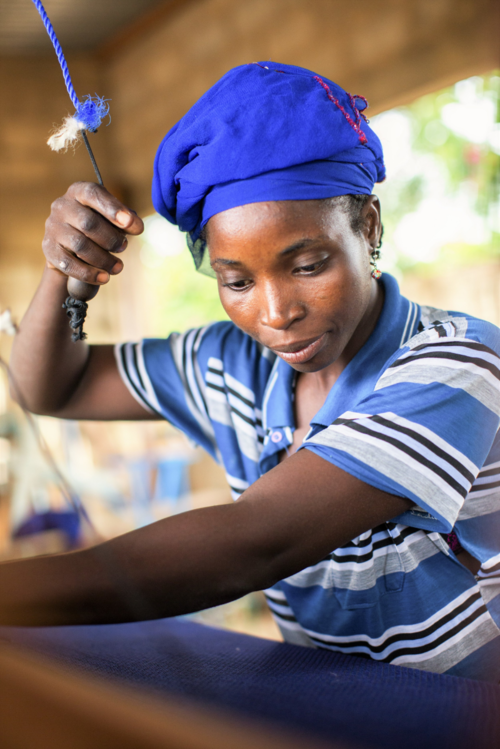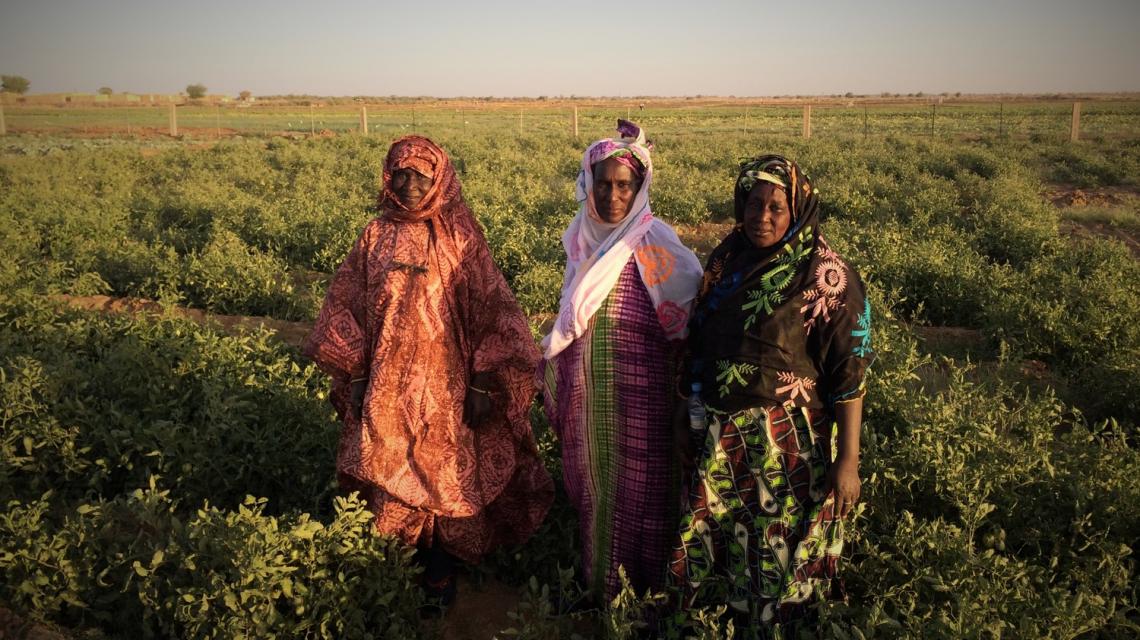Today, Muslims around the world celebrate the end of the holy month of Ramadan. For one month, June 5 to July 5, Muslims performed several prayers a day and fasted from dawn to dusk as a period of spiritual discipline. The month now ends with Eid al-Fitr, or "the Festival of the Breaking of the Fast, " a large celebration featuring a feast and gift exchange.[1]
The U.S. African Development Foundation (USADF) partners with many countries with a majority population that is Muslim, including but not limited to, Senegal, Mauritania, and Burkina Faso. In each of these countries, USADF funds projects that help alleviate hunger and poverty for marginalized and underserved communities. This African-led development encourages Africans to be directly involved in writing their future prosperity.
In Senegal and Mauritania, USADF is on the frontier, where women are breaking ground in the agriculture sector post-conflict. We highlight these country programs in honor of Ramadan, as Senegal’s population is 92% Muslim and Mauritania’s is 100%.
Women of Section Villageoise de Thilène, located near St. Louis, Senegal, own 10 acres of land in a region where no women have claim to land. In an organization of 321 members, the seven plots of land are divided so that five are assigned to men and youth, and the other two are designated for the women. The group grows peanuts, tomatoes, onions, and rice, and has installed their own sprinkler irrigation system.

Starting as a small group of rice producers in the village in 1960, Thilene had hopes of expansion and prosperity. They acquired new land, but it was dry and far from the water, limiting any potential successful production. Not giving up hope, they decided to build a canal from the river. But even then they produced no tangible results because the canal did not function properly.
Thilene finally reached their goals when they put in place an efficient irrigation system with the help of their USADF grant in 2014. The canal now allows them to benefit not only themselves, but a larger community of farmers who pay rent to access the water supply. This brings increased profits, and more prosperous food production across the country.
“The project funded by USADF allowed us to believe in our dreams of seeing the cultivation of the stretch of dry land,” said Amadou Kane, a member of Thilene. Now, Kane claims the group is said to be a “model in all the fields in the rural community of Diama,” and they are “always the spearhead of innovation.”
Similarly, women in the Coopérative Agricole Falo Kone, located near Rosso, Mauritania, also work in gender-separated garden plots and are looking to expand to cross-border exchange. Made up of 81 members, 37 of which are women, Falo Kone grows rice, onions, tomatoes, okra, and cabbage.
Falo Kone was affected by the Mauritania-Senegal Border War of 1989, when their members were forced to find exile in Senegal as their village was victim to lynch mobs and police brutality. Even post-conflict, when it was safe to return home, they were left with no land. To maintain social order, the government provided them with 56 acres, but the land was far from any source of irrigation and production was impossible.
“We experienced hunger, and we had to do day labor in neighboring fields to nourish our families,” said Malick Gueye, the president of the cooperative.
In 2013, the Mauritanian government dug a 4km canal, but it dried out in a year, leaving Falo Kone and other farmers still with no means of providing food for their community. This forced young boys to leave home searching for jobs and younger children to help in the fields or take care of animals.
A year later, the cooperative partnered with USADF to redo the canal, develop the field, purchase inputs and equipment, and create management training. That same year, they produced 24 acres of rice and 7.4 acres of vegetables, and the women grew 5 acres of vegetables.
“Our nightmare was over. We could sleep peacefully without worrying about what we will eat tomorrow, or where we will get water for irrigation,” Malick said.
Today, two years later, their canal has never dried out. Their profit increase from USADF funds allowed Falo Kone to renovate houses, build new houses, pay for education for their children, and buy animals to expand their products to include milk and meat. The women have also been able to buy clothes for their children, all their household needs, medicines, shoes, and jewelry.

In Burkina Faso, where 60.5% of the population is Muslim, we see the power of women to create fruitful projects that have expanded to reach the global market. Association des Femmes Tisseuses de Ponsomtenga (AFEPO) makes woven textiles to use for clothing, such as belts and wraps, and their project also includes literacy training and empowers women leaders to take control. Since being awarded a USADF grant in 2013, their work has been featured on runways in Milan, New York, and Paris through the United Nation’s Ethical Fashion Initiative.
AFEPO’s President, Alimata Ouedraogo, says that in addition to their global success, there is a strong demand from their local market. The women in this group are able to earn monthly salaries to support their families. Their accountant Josephine says she receives no financial support from her family, but the money she earns from the weaving group allows her to raise her three children.
USADF is committed to funding projects like these three groups of successful women. During this holy time for Muslims, we recognize and celebrate their hard work and achievements, fighting poverty in post-conflict regions. USADF helps marginalized communities in Africa be a part of their own success story. Our funds encourage communities to find a solution to their challenges and implement them, enhancing capacity building for present and future prosperity.
Thanks to partnerships with USADF, women across the continent are on the frontier of their own progress towards equality by participating in projects that increase their income, expand their produce, and support their family and community for long-lasting effects.


